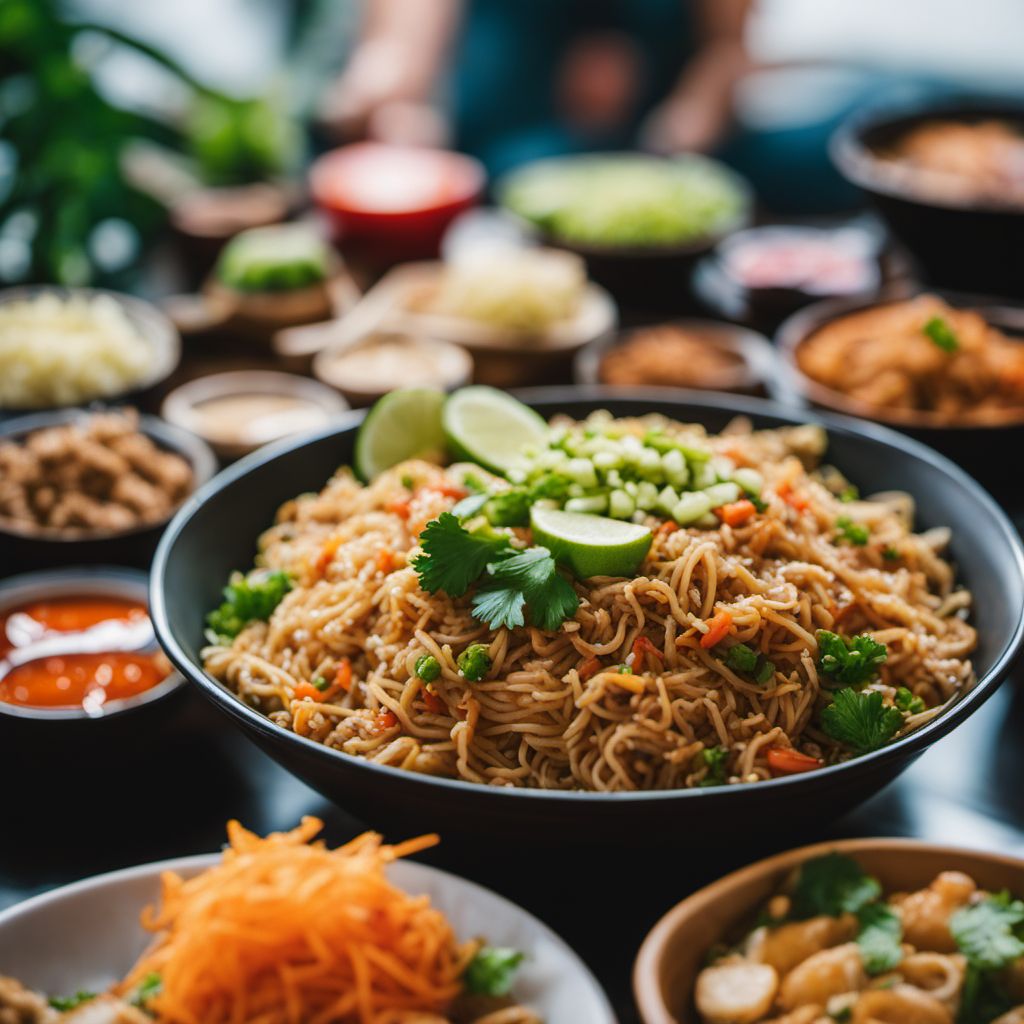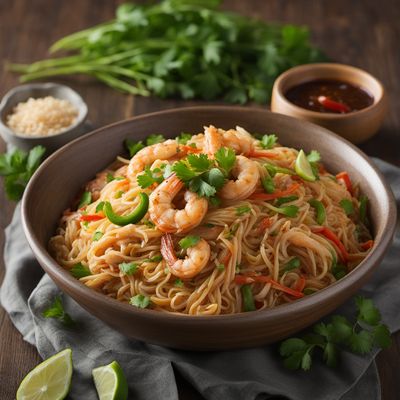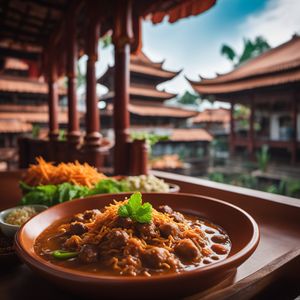
Dish
Pancit
Pancit is a versatile dish that can be made with a variety of meats and vegetables. The most common meats used in pancit are chicken, pork, and shrimp. Vegetables such as carrots, cabbage, and green beans are also commonly used. The dish is typically seasoned with soy sauce and other spices. Pancit is a filling and satisfying dish that is perfect for a family meal or a party. It is also a great way to use up leftover meat and vegetables.
Origins and history
Pancit is a traditional Filipino dish that has been around for centuries. It is believed to have originated in China and was brought to the Philippines by Chinese immigrants. Over time, the dish has evolved to include local ingredients and flavors. Today, pancit is a staple in Filipino cuisine and is enjoyed by people all over the world.
Dietary considerations
Pancit can be made to accommodate a variety of dietary needs. For those who are gluten-free, rice noodles can be used instead of wheat noodles. Vegetarians can omit the meat and add more vegetables.
Variations
There are many variations of pancit, depending on the region and the cook. Some variations include pancit bihon, which is made with thin rice noodles, and pancit canton, which is made with thick egg noodles. Some cooks also add coconut milk to the dish for a richer flavor.
Presentation and garnishing
Pancit can be garnished with sliced green onions, chopped cilantro, or a squeeze of calamansi juice. It is typically served in a large platter or bowl, family-style.
Tips & Tricks
To make the dish more flavorful, try marinating the meat in soy sauce and other spices before cooking. It is also important to cook the noodles just until they are tender, as overcooking can make them mushy.
Side-dishes
Pancit is often served with a side of lumpia, which are Filipino spring rolls. It can also be served with a side of pickled vegetables or a salad.
Drink pairings
Pancit pairs well with a variety of drinks, including beer, wine, and soda. For a more traditional Filipino experience, it can be served with calamansi juice, which is a citrus fruit native to the Philippines.
Delicious Pancit recipes
More dishes from this category... Browse all »

Arroz con apio
Panamanian cuisine

Ayam pelalah
Balinese cuisine

Beef & Broccoli
Chinese cuisine

Beef chow fun
Chinese cuisine

Beef kway teow
Malaysian cuisine

Beef suqaar
Somali cuisine

Bhutuwa
Nepalese cuisine

Black Pepper Crab
Singaporean cuisine


